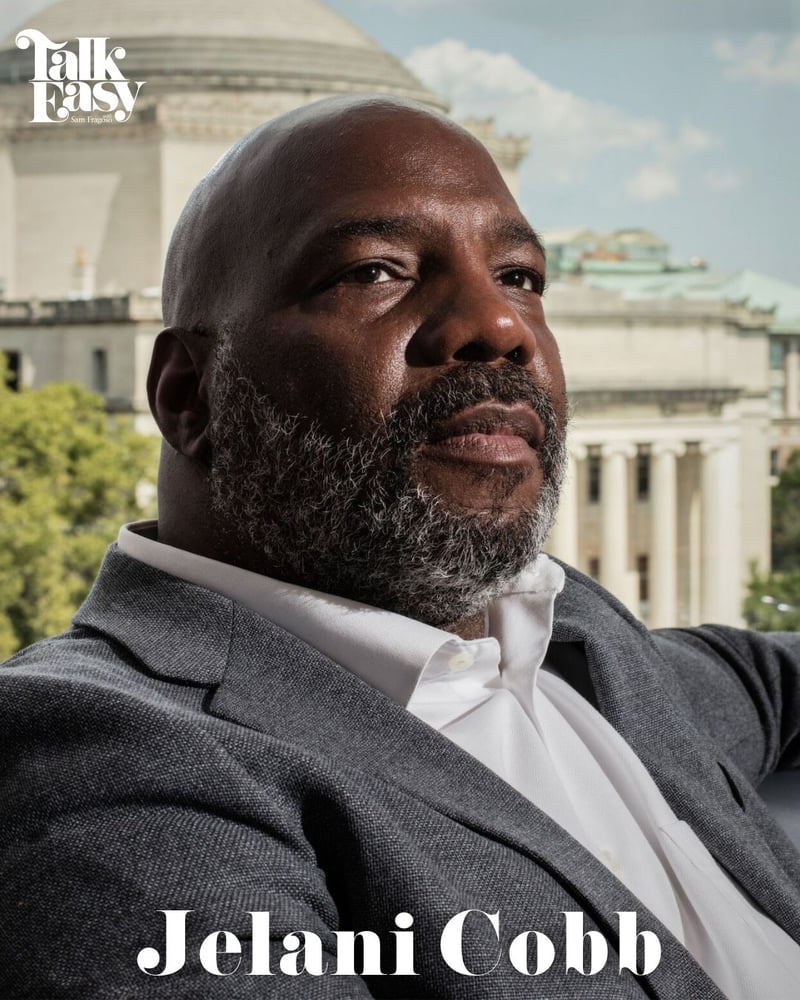This week we shared an interview that Sam Fragoso, host of the podcast Talk Easy, did with Chris Hayes. It’s a great interview about TV news and journalism, yes, but more interestingly about attention, so check it out.
But this week, Sam also dropped an interview he did with dean of Columbia Journalism School and New Yorker writer Jelani Cobb. And I just want to spotlight one question from that interview with you. Because I think it was a perfect question. Novel and surprising but also speaking to something utterly familiar – a widespread frustration with journalists.

Sam was asking Cobb about an off-the-record meeting he was part of at Columbia Journalism School in March, shortly after immigration agents arrested recent Columbia grad Mahmoud Khalil and threatened him with deportation over his pro-Palestinian activism. Days after this, Cobb was speaking to J-school students, many of whom (especially international students) were afraid of getting targeted by the government for their speech or reporting. The Times ran a story about the meeting in which they described a first amendment attorney advising students not to post about the Middle East on their social media accounts, and then quoted Cobb as saying “Nobody can protect you. These are dangerous times.”
This caused a bit of an uproar when it came out; this is not how I interpreted the comments but people were mad that Cobb perhaps seemed to be leaving his student journalists to the wolves. Afterwards, Cobb put out a statement on Blue Sky saying that those words were “technically accurate but practically misleading.” He said they were taken out of the context of the meeting, and that if you took into account that context, you would know that he was making the opposite point of what the Times article portrayed – that he had said he would do everything in his power to protect the students, while also acknowledging the limits of what he could do.
Annnnyway…in the Talk Easy interview, Sam Fragoso says he reached out to the Times reporters who wrote that story, Liam Stack and Katherine Rosman, and they told him that they “stand by our story, both the direct quotes from Mr. Cobb and the context in which they were presented. We reported this story rigorously and with concern for our sources and subjects.”
And then comes the perfect question, from Sam:
This is a good example, I think, of why people are so confused and often distrustful of mainstream media. You are the dean of journalism at Columbia. Rossman and Stack are well regarded journalists at the paper of record. And yet, even among contemporaries, we cannot get on the same page.
And so I wonder, as a journalist yourself, why, why would they stand behind a story that you've said conveys quote, “the exact opposite sentiment that you were trying to articulate?” That's what you said on Blue Sky. Why would they stand behind that?
I want to just linger on this question for a minute, and put it in your minds to ruminate on over the weekend. Because what Sam is distilling here it’s what inspired me to start this show: Even those of us who are journalists, who work in the same industry, cannot agree on how the truth should be presented. Why is that? What’s going on there? If we can’t agree, how can we expect our audience to buy in to what we’re doing?
Unfortunately, Dean Cobb doesn’t give a very satisfying answer to this question – he basically says, I don’t know, you have to ask the Times reporters why they stand behind it. And sadly Sam doesn’t push him on it further.
But there’s a deeper question there…and for the journalists reading this and the non-journalists alike, I wonder…what is the answer?
Brian